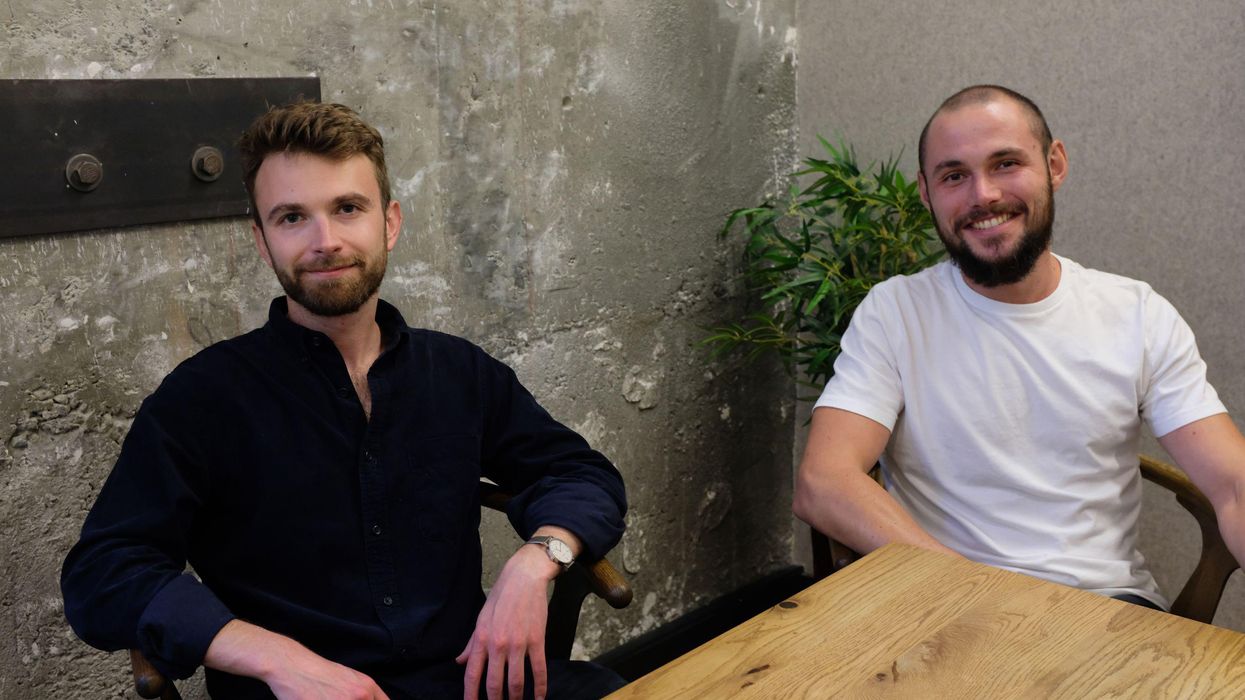ADHD and Dyslexia Often Aren't Caught Until It's Too Late. Santa Monica-Based Polygon Wants to Change That.
Keerthi Vedantam is a bioscience reporter at dot.LA. She cut her teeth covering everything from cloud computing to 5G in San Francisco and Seattle. Before she covered tech, Keerthi reported on tribal lands and congressional policy in Washington, D.C. Connect with her on Twitter, Clubhouse (@keerthivedantam) or Signal at 408-470-0776.

Here’s how Jack Rolo describes his childhood: He was good at chess, and bad at spelling. He was good at math, and bad at reading. Rolo went on to study physics at Durham University in his native England—and despite often struggling in his courses, it wasn’t until after he graduated that he was diagnosed with dyslexia, a common language processing disorder that affects reading.
Rolo’s experiences informed his founding of Polygon, a Santa Monica-based diagnostics startup that emerged from stealth on Friday with $4.2 million in funding, and the goal of better diagnosing dyslexia, ADHD and other learning-related disabilities. The funding includes a $3.6 million seed round led by Spark Capital, as well as $600,000 in pre-seed funding led by Pear VC.
“It really is a product I wish I'd had access to at an earlier age myself,” Rolo told dot.LA.
After moving to California to earn his MBA degree at UC Berkeley, Rolo met his co-founder Meryll Dindin, who now serves as Polygon’s chief technology officer. Together, they’ve built a platform that aims to partner with schools to test children for a myriad of disabilities that may affect academic performance. (The startup claims it’s already teamed with schools in California, but did not disclose which.) Rolo says he envisions that these assessments become as ubiquitous as vision and hearing exams: that every student, regardless of age, background or academic performance, will be tested.
As is, testing for disorders like ADHD and dyslexia often depends on parents, teachers or pediatricians observing a child, detecting something amiss and intervening. There are problems with this method; for instance, girls are chronically underdiagnosed with ADHD because it presents itself differently than it does for boys. Teachers juggling crowded classrooms may not be able to perceive why a specific child is falling behind. And Black and Latino children are often overlooked when it comes to diagnosing disabilities.
“Common roots of referral are teachers, and typically that's flagged because they'll see the student failing,” Rolo said. “That's part of the problem—that this then becomes almost a wait-to-fail approach, when ideally you want to pick these things up proactively.”
Polygon employs full-time psychologists who evaluate students through a telehealth platform. After undergoing a range of standardized assessments and interviewing their parents and teachers, a student who is diagnosed will receive an "Individualized Education Program," a schooling curriculum tailored toward their disabilities.
Assessments start at $995, which Polygon says is up to five times cheaper than traditional disability testing alternatives. The company plans on driving that cost down further by collecting a large data sample of assessments and building machine learning technology to “pre-screen” students; those who are flagged would then undergo more extensive testing.
“Ultimately, what we're trying to move toward is a model quite similar to the optician, where everyone gets the evaluation,” Rolo said. “Yes, assessments are still not accessible for all families just yet—but this is the beginning, and we hope to drive this cost down way further over time.”
Polygon said the new funding will go toward expanding beyond California and growing its network nationally.
- Kernel Raises $53M in Quest for Brain-Reading Machines - dot.LA ›
- Found CEO Sarah Jones Simmer on How Her Cancer Diagnosis ... ›
- HYCOR Biomedical Raises $20M to Expand Allergy Testing - dot.LA ›
- Marker Learning Makes Learning Assessments More Accessible - dot.LA ›
Keerthi Vedantam is a bioscience reporter at dot.LA. She cut her teeth covering everything from cloud computing to 5G in San Francisco and Seattle. Before she covered tech, Keerthi reported on tribal lands and congressional policy in Washington, D.C. Connect with her on Twitter, Clubhouse (@keerthivedantam) or Signal at 408-470-0776.





 e.l.f. Beauty Chairman and CEO Tarang Amin and Rhode Founder Hailey BieberImage Source: e.l.f. Beauty
e.l.f. Beauty Chairman and CEO Tarang Amin and Rhode Founder Hailey BieberImage Source: e.l.f. Beauty